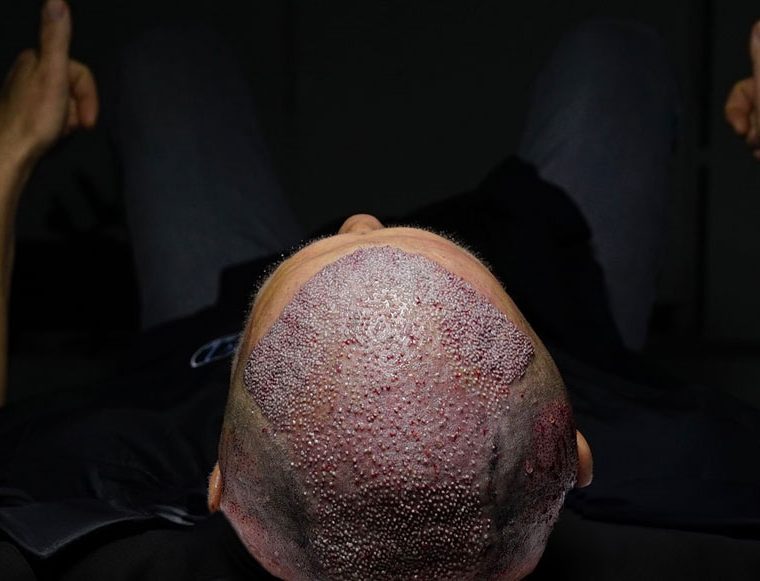Smoking after a hair transplant is one of the most important factors that can directly affect the success of your procedure.
A hair transplant involves transferring healthy follicles from the donor area to regions affected by thinning or hair loss. However, smoking too soon after the operation can significantly delay recovery and reduce graft survival rates.
Nicotine and carbon monoxide in cigarettes restrict blood flow and limit the oxygen supply necessary for new grafts to thrive. This slows tissue healing, decreases graft retention, and increases the overall risk of complications.
At Zeynep Metin Clinic, we strongly recommend avoiding smoking for at least one week before and one week after your hair transplant to ensure the best possible results.
The Effects of Smoking After a Hair Transplant
Smoking doesn’t just harm general health—it also has a direct negative impact on hair transplant success.
The chemicals in cigarettes reduce oxygen transport and blood circulation, which prevents new hair follicles from receiving the nutrients they need. As a result:
- Newly implanted follicles may fail to survive,
- Healing time increases,
- Infection and inflammation risks rise,
- The likelihood of graft shedding becomes higher.
Additionally, smoking can worsen scalp dryness, itching, and crusting. These side effects interfere with tissue regeneration and increase the risk of visible scarring.
When Is It Safe to Smoke After a Hair Transplant?
Your body enters an intensive healing phase during the first few weeks after surgery. During this time, nicotine constricts blood vessels, reducing the success rate of graft anchoring.
The ideal approach is to:
- Stop smoking one week before surgery,
- Avoid smoking for at least two weeks after surgery,
- Ideally refrain from all nicotine use for 3.5–4 months for optimal recovery.
This period allows hair follicles to strengthen and promotes proper blood circulation for new hair growth. Waiting patiently during this time is key to achieving permanent, natural, and dense results.
Pre-Transplant Preparation and Surgical Guidance
During your initial consultation, your surgeon will evaluate your overall health and lifestyle habits. If you smoke, it’s essential to be transparent about it, as:
- Nicotine can interfere with anesthesia,
- It may decrease oxygenation in tissues,
- And increase the risk of infection.
At Zeynep Metin Clinic, our specialists create personalized treatment and preparation plans to support patients in quitting smoking prior to surgery. This tailored approach helps ensure optimal healing and long-term success.
Tips to Accelerate Recovery After a Hair Transplant
To promote faster and healthier healing:
- Stay hydrated and maintain a balanced diet,
- Avoid alcohol and cigarettes,
- Do not scratch or press on the transplanted area,
- Use your prescribed care products consistently,
- Avoid direct sunlight and excessive heat.
Following these simple yet effective steps enhances graft survival and encourages stronger hair regrowth.
How Smoking Damages Hair Transplant Results
Cigarette smoke contains over 4,000 harmful chemicals that reduce the blood’s oxygen-carrying capacity. This can lead to:
- Follicle death (loss of transplanted grafts),
- Delayed wound healing,
- Uneven or unnatural hair density.
Completely avoiding nicotine after a hair transplant is crucial to achieving natural and long-lasting results.
Tips for Quitting Smoking Before and After a Hair Transplant
Quitting smoking not only improves transplant results but also benefits your overall health. Here are a few practical suggestions:
- Recognize the benefits: Stopping smoking improves cardiovascular and lung health and increases your hair transplant success rate.
- Try Nicotine Replacement Therapy (NRT): Use nicotine patches, gum, or lozenges to manage cravings safely under medical guidance.
- Seek support: Family encouragement, counseling, or online support groups can significantly boost your motivation.
- Explore alternative therapies: Acupuncture, hypnosis, or breathing techniques have helped many patients quit successfully.
Frequently Asked Questions (FAQs)
Is it safe to use cannabis after a hair transplant?
No. Cannabis can affect blood flow and slow healing. Avoid all substances, including marijuana, during the early recovery phase.Can I use e-cigarettes instead of regular cigarettes?
E-cigarettes also contain nicotine and can constrict blood vessels, impairing circulation. They are not recommended after a hair transplant.When can I drink alcohol or return to exercise?
Avoid alcohol for at least 7–10 days, as it can interact with medications and increase swelling. Resume physical activities gradually according to your surgeon’s instructions.Is smoking just one or two cigarettes harmful?
Yes. Even one cigarette can restrict blood flow for up to 8 hours, depriving hair follicles of oxygen. The safest choice is complete abstinence.


